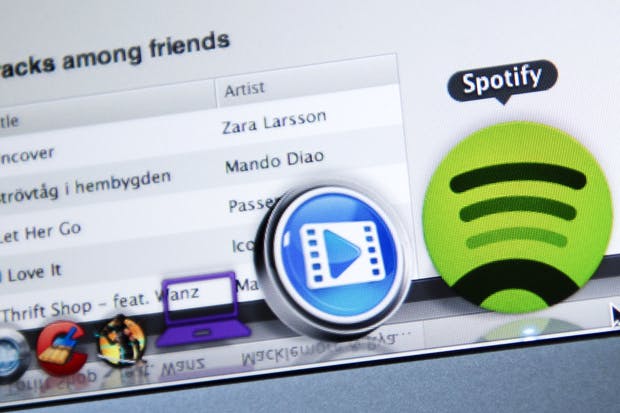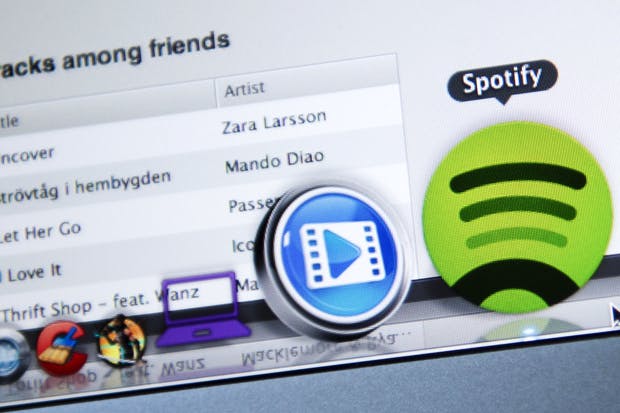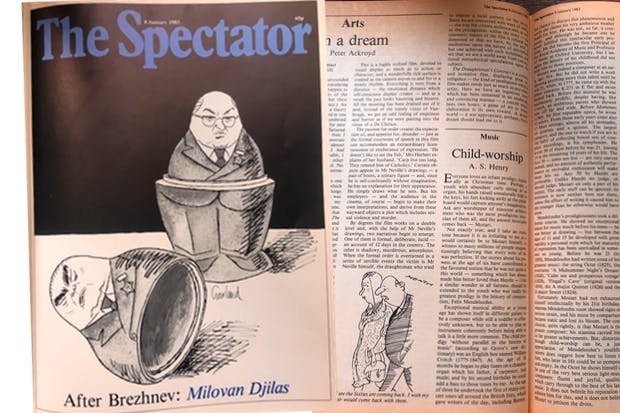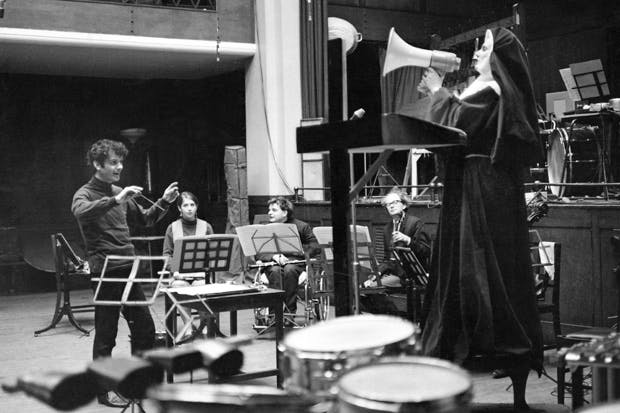We have all read about the current woeful state of the CD industry — how it is 28 per cent down on last year, which was 25 per cent down on the previous year, and so on — but do we know why? Is it the endless financial crisis? Or is it that CDs, as a concept, are knackered? And this is despite the fact that more people are taking an interest in recorded music than ever before.
The villain of the piece is of course the internet. Where previously the music one wanted was not available without going into a shop and buying it, now there is every chance that there will be a version of it somewhere on the net, which you can listen to for nothing. If it happens to be on YouTube, you may get visuals as well, or a score to follow. If it is on Spotify you will have access to a vast library of material that you can listen to free of charge if you can stand the advertisements, or pay a small fee (on average £9 a month). Elsewhere, as on iTunes, you can download your favourite tracks at low cost.
All this has spawned a great deal of activity. It represents a huge opportunity for anyone seeking to advertise themselves, but a sharply diminished income for anyone wanting to make a record for more altruistic purposes. One could argue that making a record nowadays is no more than putting together a demo tape, while the idea of recording for its own sake — to put a new interpretation of an established masterpiece before the public, for example — requires special sponsorship. No one, at least in the classical market, expects to make money by selling CDs any more.
Why did the major record labels ever agree to these very cheap availabilities? After all, there are laws against piracy, very effectively invoked in 2001 when a prototype free streaming site called Napster was forced into bankruptcy after the leading labels ganged up against it. Far more effective has been the softly-softly approach of Spotify, which eventually got the four ‘majors’ — EMI, Sony, Warner Music, and Universal — to agree to make their recordings available in return for shares in the company. This is what has driven rank-and-file musicians mad. The success of Spotify guarantees these labels a supply of money that is separate from what they have to pay their artists by contract. Spotify is not selling a physical product, just the ability to listen to tracks at random, leaving its shareholders to spend the proceeds as they please. They may not decide to reinvest in their artists’ careers, especially not now that the culture of artists paying for their recordings is so well established.
But there are two sides to this. Spotify, iTunes and even YouTube do pay out to the labels whose recordings they play. No one is claiming that this revenue has replaced what used to be made from selling CDs, but it is an improvement on nothing, if nothing is where your business has got to. It is claimed that the record industry in Sweden — where Spotify was invented and launched in 2008 — was in such a dire state that Spotify single-handedly saved it.
The great merit of these internet sites is that they put before a large and young audience music that might otherwise remain completely unknown. There are plenty of groups who think that they will sell more CDs if Spotify does not have them — yet they run the risk of disappearing. I have decided that I would rather my recordings are available for young people to listen to, in the hope that they will come across something they would otherwise never have heard and in time will want to own, on a higher fidelity format. When I was a teenager I knew so little about which recordings were available, and had so little to spend on what I did know, that I wasn’t even a statistic. The question is what I would have bought later, when I had some money, if I had had Spotify to educate me. I am hoping that countless young people will be interested in the Tallis Scholars repertoire when they start to earn, because they know that it exists and have already enjoyed it. I do not think that Spotify and the others are stopping them from buying my CDs, since they are not yet buying CDs of any description.
Any publicity is good publicity. I do not think there is a future for CDs — downloads are the way forward, just as CDs were the way forward 30 years ago. The quality will have to improve. Many classical organisations, not least the big orchestras, are adopting the model that more concerts could pay for recordings. We just have to undo old ways of thinking — starting with session fees.
Got something to add? Join the discussion and comment below.
Get 10 issues for just $10
Subscribe to The Spectator Australia today for the next 10 magazine issues, plus full online access, for just $10.












Comments
Don't miss out
Join the conversation with other Spectator Australia readers. Subscribe to leave a comment.
SUBSCRIBEAlready a subscriber? Log in